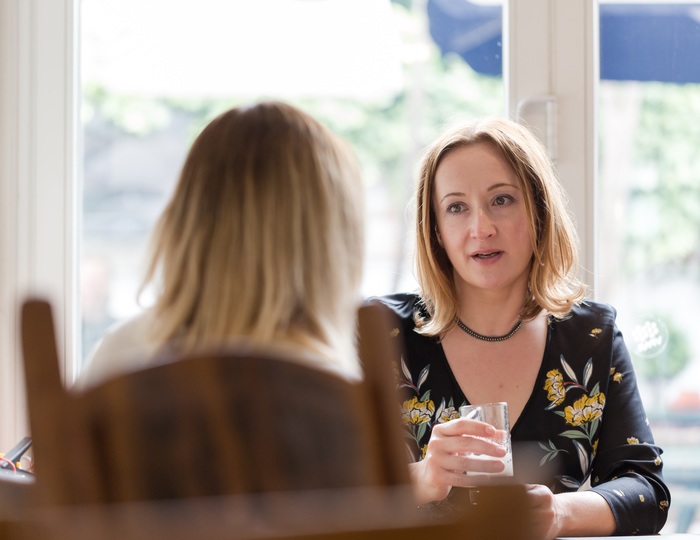 At the doctor’s office, you are given pages upon pages of paperwork to fill out about
At the doctor’s office, you are given pages upon pages of paperwork to fill out about
insurance information, medications and past illnesses and surgeries. When you get to
the family history page it can be a bit overwhelming or you might even draw a complete
blank. Did your Aunt Mabel have breast cancer? You vaguely remember your father
telling you something about your second cousin’s diagnosis, but you can’t remember,
and now some family members aren’t talking, so the facts are elusive.
It’s important to open up the conversation on family medical history with your family
regardless of how difficult it may be. Why? Whether Aunt Mabel or your second cousin
had breast cancer is important to determining your own risk and your children’s risks.
With this information, you can make decisions about your own health, breast cancer
prevention and potential treatment, if you are diagnosed.
Unfortunately, starting a conversation with family about medical history, and especially
one about cancer, can often be difficult. While some family members may open up,
others may consider this private information, or they might get upset talking about
cancer. Others might not even know their own history.
So how do you find out what you need to know?
1. Make a List
Your medical history should include information from at least three generations of family
members — grandparents, parents, uncles, aunts, siblings, cousins, children, nieces,
nephews and grandchildren. Make a list of who you need to approach.
2. Explain What You’re Doing
Contact each family member – whether in writing, by email or by phone – and explain
that you are trying to obtain family medical history. If they are still reluctant to talk about
everything, try to ask specific questions about breast cancer. Some information is better
than none.
3. Ask Pertinent Questions
You should have a list of questions that you need answered. A complete family medical
history includes the age of the relative and any diagnosis or, if you are asking about a
deceased relative, the age and cause of death.
4. Keep it Confidential
Assure your relatives that the information you are compiling will be kept confidential —
and then keep it confidential.
5. Use Additional Resources
If your relatives are deceased or difficult to talk to, there may be other resources you
can use, such as public records – marriage licenses or death certificates.
Once you have all the information compiled, make sure you give a copy to your doctors
and update it regularly. They are bound by law to keep the information confidential.
To learn more about natural breast reconstruction and find out if it might be the right
choice for you, contact The Center for Natural Breast Reconstruction at
NaturalBreastReconstruction.com or toll-free at 866-374-2627.





